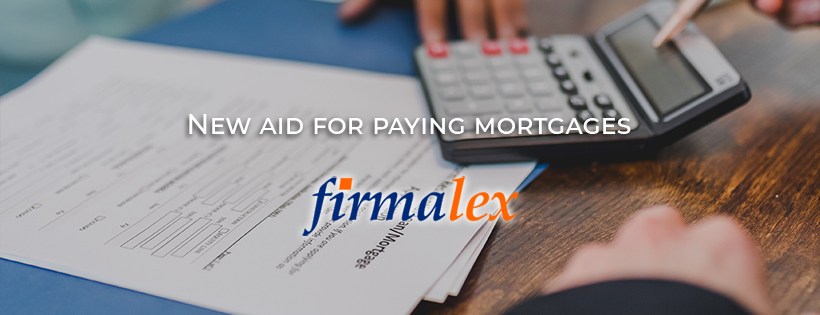A package of measures aimed at offsetting the impact of the rise in Euribor on mortgage holders has recently been approved.
The agreement has been reached by the employers’ associations, the Bank of Spain and the Ministry of Economy, affecting one million people with mortgages.
The vice-president Nadia Calviño explained that the banks will have one month to decide whether to join the agreement, as the mortgage payment aid measures will come into force on 1 January 2023.
Application of the new mortgage payment subsidies
Two new Codes of Good Practice, an instrument chosen by the Government and the banks, will be used to apply the mortgage payment assistance. Adherence to them will be voluntary, but compliance will be obligatory if they decide to join. To this end, the government intends to reinforce supervision of compliance with the two codes.
As for the beneficiaries of this aid, the measures are aimed at:
- Vulnerable families, with a new regulation.
- Early repayment of loans.
- Change from variable to fixed mortgages, which could affect a third of those mortgaged.
Vulnerable families as the main beneficiaries
At the heart of these new mortgage payment measures is the modification of the Code of Good Practice for mortgage debtors, in existence since 2012. This document considers mortgagors to be vulnerable when they have an income of up to 25,200 euros, the percentage of income they allocate to paying the mortgage is 50% and the effort to pay has increased by 50%.
For people included in this group, three options are envisaged:
- Restructure the loan. During the 5-year grace period, a lower interest rate would be paid, going from Euribor +0.25% to Euribor -0.1%.
- Extension to 2 years of the term to request the dation in payment, an action that consists of handing over the house to the bank in exchange for cancelling the debt.
- Possibility of a second restructuring of the mortgage.
Fewer requirements will be demanded
The requirements for accessing the approved measures will be flexible. In this way, if mortgagors meet the income and mortgage payment percentage requirements, they will be able to access them even if they do not meet the 50% increase in financial effort required.
In this case, the agreement provides for the possibility of a 2-year grace period at a lower interest rate, with the possibility of extending the term by up to 7 years.
This option is designed for families affected by the rise in interest rates and who have to cut back on basic expenses in order to meet their mortgage payments.
Mortgage modification
This measure is aimed at families with an income of less than 29,400 euros per year and who have a mortgage signed for the purchase of a home up to 31 December 2022. In addition, they must allocate more than 30% of their income to the payment of the loan and it must have grown by at least 20%.
The measures offered to people who meet these requirements are the possibility of freezing the instalment for 12 months, a lower interest rate and the extension of the loan repayment period by up to 7 years.
These aids are articulated in a new Code of Good Practice which is aimed only at middle class mortgage holders.
Changing from variable to fixed rate mortgages
Although the usual cost of changing from a variable to a fixed mortgage is usually between 500 and 1000 euros, the aim of this measure is to make the modification simple and with reduced costs and commissions. In addition, commissions for early repayment and for changing from a variable to a fixed mortgage will be eliminated.
These aids are the ones that have generated the most differences between the Government and the banks, since the former wanted to grant aid to the vulnerable classes but also to the middle classes and the latter only to those who are in a situation of vulnerability.
Collaborating entities
Banks have one month to decide whether to join the new codes of good practice, so it is not yet known how many of them will support the measures. Adherence is voluntary but, if it is carried out, compliance will be obligatory.
In the case of CaixaBank, it seems that they are clear about joining this programme of measures, but Banco Santander has doubts about the impact they will have on the sector’s provisions and is waiting for some small changes in the agreement before deciding whether to join or not.
The purchase of a home usually involves a mortgage loan. It is now possible to benefit from mortgage payment subsidies for vulnerable people, change from variable to fixed mortgages and other modifications. The aim is to offset the impact of the rise in Euribor.
Solve your doubts
✅ Our staff speaks perfectly Spanish, Valencian, English and German with what will be able to communicate with us in your own language and thus clearly resolve your queries.
📍 Denia – Plaza del Convento, 6 – Mezzanine floor door B
📍 Valencia – Calle Creu Roja, 1 – Block 6, Floor 1, door 10 (* only by appointment)
✉📞 Contact: info@firmalex.com – Tel. +34 966 421 416 – Whatsapp +34 622 497 615



